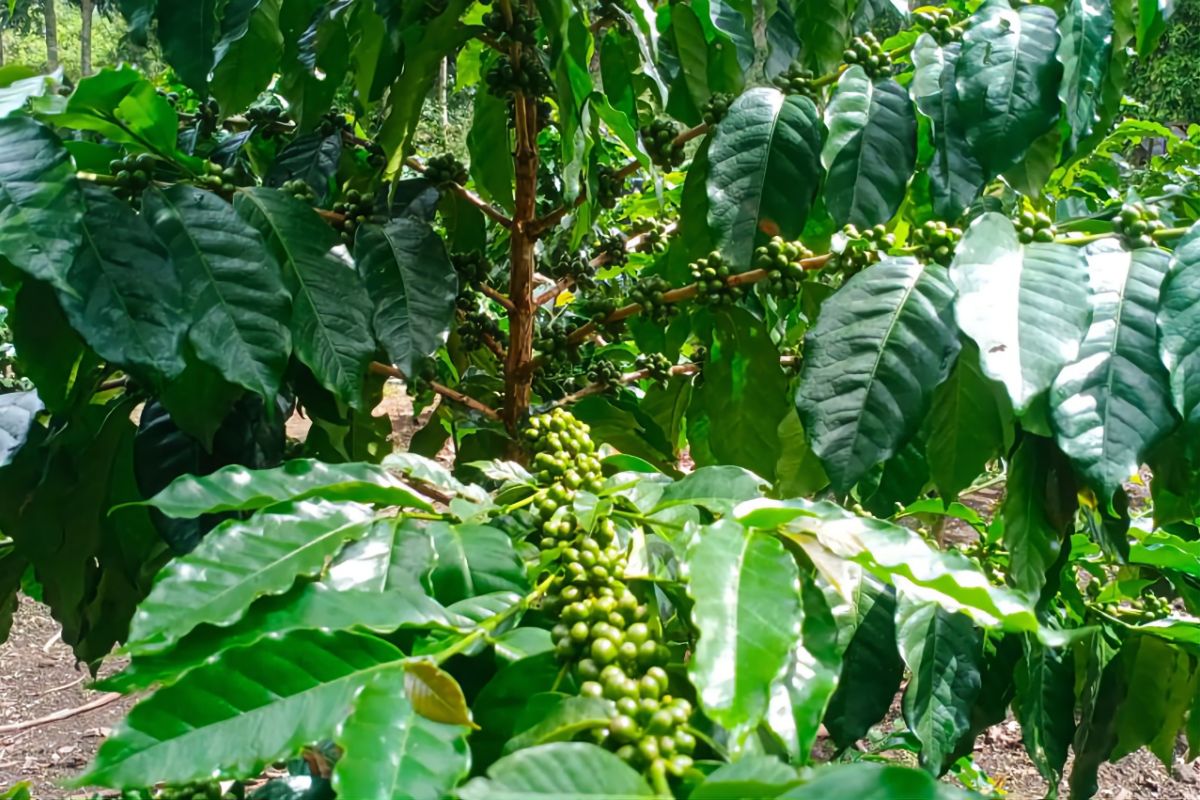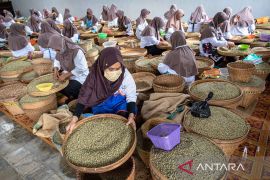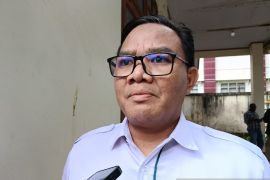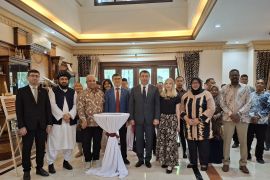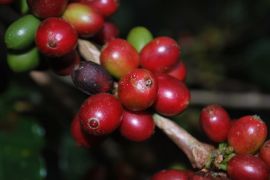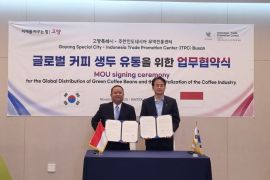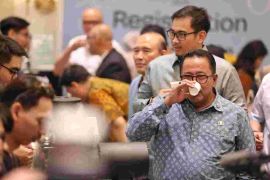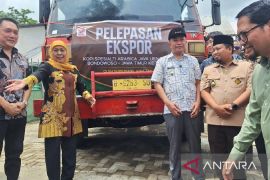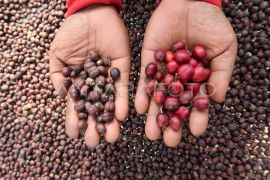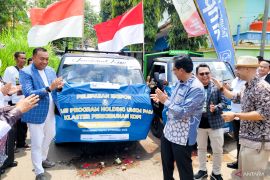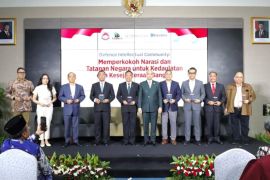However, the commodity’s post-harvest process should meet the global market's requirements.
GI is a sign that shows a product’s origin, emphasizing its geographical environmental factors to increase the product’s sale value. Geographical environmental factors give a certain product its characteristics and quality. The factors might be natural, human, or both.
The global market’s demand led to the Ministry of Cooperatives and Small and Medium Enterprises' (SMEs') collaboration with a coffee factory, exploring 50 locations in Indonesia that harbor coffee potential and quality, each with its own geographical conditions, with one of them being in Sembalun, East Lombok, West Nusa Tenggara.
The exploration is in line with the effort to empower traditional farmers and turn them into professional ones.
The Ministry of Cooperatives and SMEs is committed to increasing the capacity of micro, small, and medium entrepreneurs through facilitation, synchronization, and partnership coordination in financing access and technology utilization.
Thus, the main focus of the ministry’s service is the micro, small, and medium enterprises (MSMEs), especially farmers and fishermen. However, the service requires cooperation from three entities: cooperatives, companies, and foundation activities.
CEO of Coop Coffee Indonesia Reza Fabianus stated that the exploration of Sembalun coffee’s potential was conducted after the success of bringing Kintamani Coffee from Bali into Starbucks, he stated in a session to raise awareness among farmers and absorb their aspirations in North Lombok, West Nusa Tenggara, on Friday, January 26, 2024.
Starbucks Corporation is a coffee company and global coffee chain from the United States, headquartered in Seattle, Washington.
Since 2015, Fabianus, who was then in the National Cooperative (Kopnas), accompanied the Kintamani coffee farmers through various processes, from post-harvest education to marketing. At the time, he had a strong passion for bringing Kintamani coffee into the global market.
Thus, constant efforts were needed to maintain the quality of Kintamani coffee, such as through educating farmer groups to harvest while the coffee cherries are still red and processing them into green beans. Starbucks then finally accepted the coffee product.
As the global coffee trade demands rapid business adaptation, an idea to establish a cooperative-based coffee trading company emerged.
The exploration in Lombok is in line with an Indonesian coffee company’s participation in Europe’s biggest agriculture exhibition, the SIA Paris Expo, in late February 2024. The 2024 SIA Paris Expo is themed “GI-based agricultural commodities.”
The Sembalun coffee is an early model of facilitation, synchronization, and partnership coordination in financing access and technology utilization.
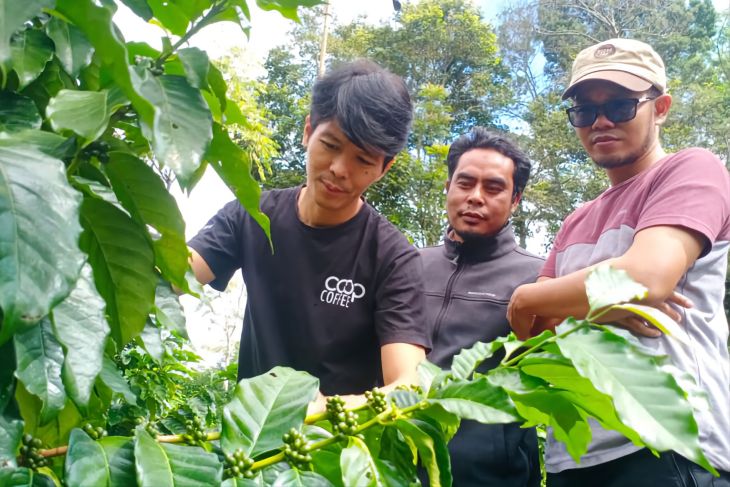
Thus, meeting coffee farmers in Sembalun was an effort to increase market access, so that coffee from the region can expand its local and global market reach.
Success in promoting Sembalun coffee worldwide can be achieved through cooperation between business entities and ministries and institutions, such as the Ministry of Cooperative and SMEs, as the mover.
To conduct an effective GI-based coffee partnership cooperation, coordination and synergy from all stakeholders, namely the coffee farmers and local MSMEs, are needed. Banking is also needed as a financing access through the People's Business Credit (KUR).
The cooperation offers support in education and training, as well as accompaniment for the Geographical Indication Protection Society (MPIG) farmers in the technical field of coffee cultivation, as well as coffee product quality improvement or post-harvest treatment. Ultimately, it is hoped that the coffee product fulfills the GI-based quality required by the market.
Through partnerships with MPIG Kintamani Bali, MPIG Java Preanger West Java, MPIG Kerinci Jambi, MPIG Gayo Aceh, and East Java, Starbucks Company bought Indonesia’s coffee products via its company offices in Switzerland, Japan, the Netherlands, and Saudi Arabia.
Ministry of Cooperatives and SMEs Public Relations Syahrul, who was present at the session in Lombok, remarked that the state will be present to respond to the people’s needs, especially those of coffee farmers.
Farmers, who participated in the activity, are expected to spread their knowledge about coffee and be educated to respond to the global market’s needs.
Furthermore, farmers who have encountered difficulty in selling their coffee harvest are expected to focus on post-harvest treatment and management. The coffee that they produced will be sold through coffee farmers’ cooperatives and its marketing will be facilitated by coffee companies.
Coffee farmers’ hope
Chairman of Sembalun Arabica Coffee MPIG Hasbullah tasked coffee companies in Indonesia with fulfilling the hope for GI protection, so that customers can only obtain Sembalun coffee from one door and the farmers are made aware of the coffee markets’ potential. The hope was echoed during a training event in the Sembalun Arabica Coffee Field on Saturday, January 27, 2024.
Sembalun arabica coffee farmers and enthusiasts have proposed a certification request to the Directorate General of Intellectual Property, the Ministry of Law and Human Rights, in March 2023. A response is still awaited for the request.
The farmers expressed hope that a visit from a coffee company that had earlier managed the revitalization of Kintamani Bali Arabica Coffee MPIG would aid their technical communications with stakeholders.
They also expressed hope that follow-up steps would be taken in line with the session to absorb aspirations conducted by the Ministry of Cooperatives and SMEs and Coop Coffee Indonesia in Lombok, as coffee farmers in Lombok required more information and education to broaden the promotion of Sembalun coffee.
In response, Coop Coffee Indonesia was willing to facilitate efforts to fulfill the hopes echoed by the Sembalun coffee farmers.
The company has signed a cooperation agreement for coffee research and development based on GI in Indonesia with the French Agricultural Research Centre for International Development (CIRAD) as the innovator of global GI certification. The agreement is in effect until 2025.
With the GI certification, coffee farmers’ income is expected to increase. Sembalun coffee, with its uniqueness and characteristics, will be certified as a premium product, and the farmers’ sales will increase.
Related news: Govt to help boost global market for West Lampung robusta coffee
Related news: A peek at West Nusa Tenggara's coffee potential
Editor: Arie Novarina
Copyright © ANTARA 2024
